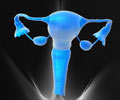Aspiring octomoms beware. A new study says that IVF twins might require hospitalization more than those conceived naturally.
Actually about one in four conceptions through IVF result in twins, compared to just one in 80 in natural pregnancies.And it is also known that such twins have a greater chance of being born premature, underweight or with birth defects than other children.
But it was previously thought that most of the health problems they suffered were as a result of being a twin, rather than because of fertility treatment.
However, the results of the new study, suggest that those born through IVF and other fertility treatments are more likely to need hospital treatment as they become toddlers than other twins.
They are also more likely to be admitted to neo-natal intensive care units in the days after their birth.
Artificially conceived twins stayed an average of 12 days in hospital, four more than other twins, after they were born and were four times more likely to be admitted to neo-natal intensive care units.
Advertisement
Michèle Hansen, from the Telethon Institute for Child Health Research in Western Australia, who led the study, said: "Couples undergoing fertility treatment should be aware that, in addition to the known increased risks associated with a twin birth, twins (born through fertility treatment) are more likely than spontaneously conceived twins to be admitted to neo-natal intensive care and to be hospitalised in their first years of life."
Advertisement
The study looked at 4,797 twins born between 1984 and 2000.
Researchers compared only non-identical twins, who do not share a placenta and should face the same health risks.
A second study, from researchers at the Sahlgrenska Academy, in Gothenburg, Sweden, and also published online in Human Reproduction, shows that children born from embryos that were frozen and stored are as healthy as other artificially conceived youngsters.
A maximum of two embryos can be placed in a woman's womb during each course of treatment, although the Human Fertilisation and Embryology Authority, the UK fertility watchdog, is pressing for most couples to use just one, because of the risks involved.
Source-Medindia
GPL/S













